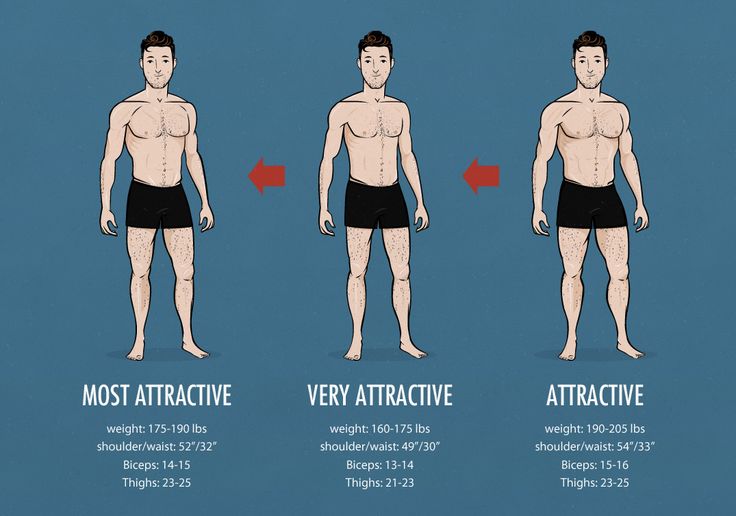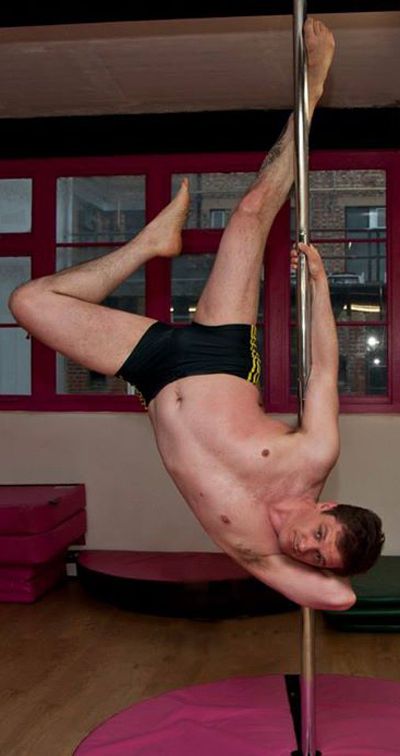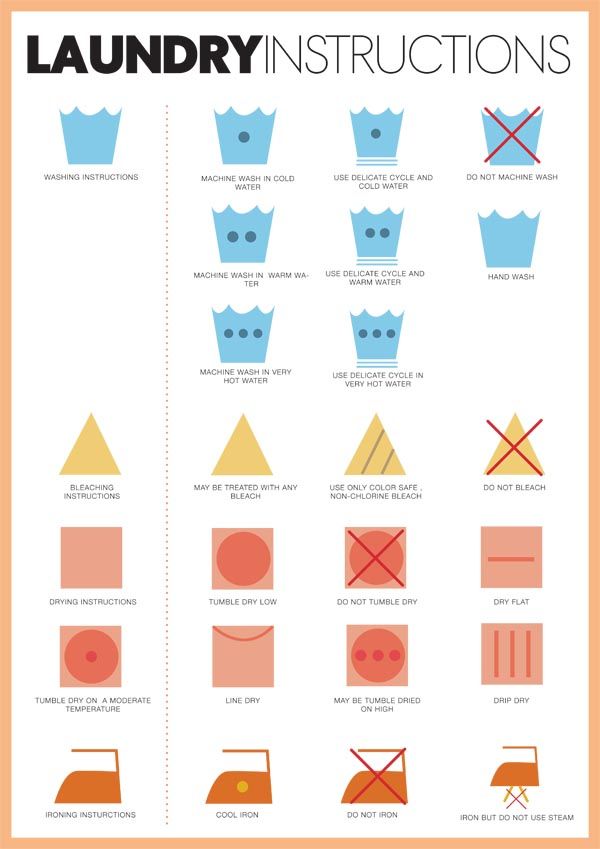How much do male dancers make
How Much Money Do Male Strippers Make?
It seems to be the first question all beginners ask experienced male strippers, “how much money do male strippers make?”.
Well it’s actually a good question. You never accept a job offer during an interview without knowing how much your going to be paid, do you?
It’s a complex question, and how much you can earn is a direct result of your location, skill and experience. Having said that, I will do my best to break it down and give you a very good idea of what you can potentially make.
First up, to understand how much money male strippers make – we have to look at the different areas of stripping. Not all male strippers make the same money, and this is because many do slightly different types of jobs. Let me elaborate for you below.
How much money do male strippers make?
Male strippers doing private booking can earn anywhere between $200 USD – $800 USD per night, with most bookings only being on the weekend. Usually 1 night, the Saturday night, is the most common night where most of the money is earnt.
In the strip club
Good male strippers know the importance of selling private lap dances over anything. If you can master the art of selling private lap dances then you will walk away in one night with a large enough profit to last the entire week.
Lets say you have an OK night in a busy male strip club.
You have about 4 stage solo spots scheduled for the night (make sure you have a different costume every time!).
Now during those solo’s you made about $30 in $1 bills.
In between your stage solo’s you were able to walk around the strip club and sell 15 lap dances in the open club space for $5 each.
Of those 15 dances you sold, 10 of those girls bought another lap dance from you in the private room for $50.
Learn how to become a male stripper with my FREE guide above!
So;
4 x $30 = $120
15 x $5 = $75
10 x $50 = $500
Total earning’s for the night = $695
That’s pretty dam good for 1 nights work! For most people, that’s enough money to easily last the week.

If you have a good body, and your ok with this type of work, I don’t know why you wouldn’t want to get involved in this industry, It’s incredibly useful to have a second source of income that pays you cash in hand. I’ve seen male strippers loose their day job, yet not have to worry about money, all because they still had stripping. It has allowed them to pay the bills, put food on the table and even pay off student loans.
Doing private booking (strip-g-grams)
In the industry where you visit peoples houses/hotel rooms to do private shows for bachelorette and birthday parties (or any occasion really), the amount of money you can make is a result of how many pre-bookings you get.
I explain all the different techniques you can apply to book out your work calendar 2 months in advance in my online course male stripping 101.
How much you earn will also be determined by what services you can offer. The more variety you can offer in show types and costumes the more bookings you will get.
For instance, If all you have is a policeman and fireman costume, and you only offer G-string shows (non nude – only strip down to G-string), you will only get about 30% of all possible bookings. Thats a huge margin to miss out on, purely because you can’t offer what the client is looking for.
Your pay rate will also change in every country, for that reason it’s almost impossible for me to give you an idea of how much you can make. However, having performed all over the world, I can give you an idea of what strippers make in 3 different countries.
So let’s break down how much you can make as a stripper doing private bookings in: Australia, England and UK.
In England male strippers make about 100 – 120 pounds for a full monty (full nude) strip show (15mins), In Australia you will be paid $200 for a full monty show and in the USA you will only make about $50 – $100 for a 15minute show full monty show.
Now your probably wondering why the US is paid at such a lower rate, well there is good reason for this. You need to take into account the fact that male strippers in the United States get paid generally in tips also, hence why the base rate of pay is smaller. If you’re a great entertainer, you can expect to make anywhere from $50 – $100 extra in tips.
You need to take into account the fact that male strippers in the United States get paid generally in tips also, hence why the base rate of pay is smaller. If you’re a great entertainer, you can expect to make anywhere from $50 – $100 extra in tips.
learn male stripping in our full online course with tutorial videos.
In the US they also have 30min booking and 1 hour bookings. The longer the booking, the more potential you can make in tips. All male strippers in the US should have a good variety of tipping games to play on the night, so your never caught out just walking around looking bored and asking for money.
Now given all the above information, a successful male stripper will be able to book his weekend out with at least 6-8 jobs distributed over Friday and Saturday night.
Now if you’re in Australia for instance (my home) and you have 8 bookings, thats a total of $1,600 cash in hand for a weekend of work! Not bad at all!
Male revue shows
In this line of stripping work, your going to be paid the least amount of money (there are a few exceptions to this and I will elaborate later).
The reason behind the low pay is because your restricted to only doing the 1 show on the night (the male revue show). A male revue is a full theatre style ‘bells and whistles’ stage show. The sort of show that women purchase tickets for, and usually require pre-booking.
It’s a show that has a tight group of guys that always work together and perform as backup dancers in each others routines.
Generally, these shows will want you there the whole night. You are required to give at least 4-5 hours of your time getting there before the show to get ready and also hanging around after to sign pictures with the audience and take photos.
This makes it particularly hard to get any other private bookings on the side, as the show will be during the ‘peak hours’ of your night every weekend.
Pay for a male revue show will defiantly vary from show to show, so you’re going to have to ask them directly how much they pay. But as a good rough estimate, it will be about the same price as 2 private bookings in your country.
Male revue shows typically work on an invoice basis, not cash in hand. So if your looking to hide your hard earned money from the tax department, I wouldn’t recommend this option.
Now the exceptions to this, would be if you joined an internationally acclaimed male revue show such as Thunder From Down Under, Chippendales or Sixpaxxx. These shows consist of touring teams that have show schedules booked out for the whole year all over the world. You will be doing about 4 – 5 shows a week depending on your schedule and getting paid well for each show (not to mention all the places you will see).
The only downside to this is competition is high to get accepted into one of these shows, making it an unrealistic option for beginners with no experience.
There we go! Thats a rough idea of what you can expect to earn in the 3 different disciplines of male stripping. I hope you have learnt something and have now gained a wider knowledge of this exciting industry.
If you have any, and I mean ANY questions, don’t be afraid to message me on social media via the platforms below, or leave a comment! Good luck!
Tommy is an internationally recognised male entertainer, with experience performing in country’s all over the world. His online courses in male stripping have helped men become better male strippers and have become a recognised qualification by many agency’s and shows around the globe.
11 Things I Wish I Knew Before Becoming a Male Stripper
Magic Mike brought the world of male stripping to the big screen, but the job requires a lot more hard work than memorizing a few minutes of sexy choreo. For starters, you have to hustle to get hours—most male strippers freelance, hopping from club to club to make coin. Befriending clients is key for raking in tips, so flexing your personality can be just as important as flexing your biceps. And while having people fawn over you makes you feel pretty damn hot, sleeping with clients is completely off the table. Some nights you’ll be showered in cash, but don’t expect every customer to make it rain.
Befriending clients is key for raking in tips, so flexing your personality can be just as important as flexing your biceps. And while having people fawn over you makes you feel pretty damn hot, sleeping with clients is completely off the table. Some nights you’ll be showered in cash, but don’t expect every customer to make it rain.
If you’re curious to know what it takes to become professional dancing hunk, look no further: Axl Reigns and Zackery Cross are here to give Cosmo the scoop. Hailing from Texas, Reigns worked as a dancer at LaBare Dallas, the first ladies-only male strip club and bachelorette party destination for celebs like Jessica Simpson and Anna Nicole Smith. From Las Vegas to New Orleans, Cross has performed at clubs across the U.S., including popular male revues like Kings of Hustler and Men of Vegas Live. Below, find their top tips for aspiring male strippers.
You're probably not the whole package, but you're going to have to become the whole package—fast.

Everyone deals with their own challenges and insecurities. "I didn't have a background in dancing at all. So I struggled a little bit," says Reigns. While some male strippers pump iron to attain the shape that they want, others might have to adjust their diets. According to Reigns, it also requires a certain disposition. "I didn't really have the personality to be a [stripper] at the start," explains Reigns. "I had to create a persona that was more of an entertainer."
Your personality is (almost) as important as your body.
As a stripper, getting immediate feedback is pretty simple: Just look at how much money you make. If you're doing something wrong, your income will suffer. "It's a very powerful motivation," says Reigns. "If you're shy, you say, 'Okay, what are the subjects that women would want to talk about and how can I learn about these subjects to carry on a conversation?'" A self-proclaimed introvert, Reigns admits he had to learn to be a little more social. "I had to loosen up a bit, and it was great. Working as a male dancer allowed me to flourish into somebody who I enjoyed being, versus someone who wasn't as socially comfortable very easily."
"I had to loosen up a bit, and it was great. Working as a male dancer allowed me to flourish into somebody who I enjoyed being, versus someone who wasn't as socially comfortable very easily."
Unless you want to perform exclusively at private house parties, working independently for multiple clubs is the best way to maximize your income. Some independent contractors, like Cross, are even willing to travel for the right job. “We'll fly places, driving, whatever it takes,” he explains. Cross and his colleagues pick locations based on seasonal demand. For example, Vegas is an ideal “summer city” for bachelorettes, while Florida is the place to be in the spring and fall. Working for a touring company is another deal entirely—strippers for popular troupes like Chippendales or Thunder from Down Under don’t make any tips at all. “You’re an employee, so you get a salary,” says Cross.
View full post on Instagram
You have to audition to get work.Strippers, regardless of their gender identity, have to audition for a club before taking the stage. Club managers assess dancers not only on their rhythm, but also on their physiques—some places even have height requirements (we’re talking 6 feet and up, only). Muscles also factor into the equation, so Cross and Reigns recommend bulking up where you can.
Stripping at certain clubs will cost you.Depending on where you work, you may have to cough up a house fee in order to perform. Make sure you have some extra cash on you so you can spot the club $40 to $50, and heads-up: This fee can be larger if you show up late. Some house fees are percentages taken out of what you make each night, meaning you could have to hand over 30% of your earnings to the club in order to use their space. On the bright side though, selling VIP dances can be lucrative: Cross says he charges $400 or $500 per customer.
On the bright side though, selling VIP dances can be lucrative: Cross says he charges $400 or $500 per customer.
"There's less of a demand for [male strippers]," warns Cross. He estimates that women can earn up to $500 a night when they're just starting out, whereas guys might make $300 to $400 a week for the first few months. It all depends on the market you're in.
Building relationships with potential clients is vital for ensuring you never have a slow night, advises Reigns. "If there aren't a lot of girls there and I'm not making a lot of money, I know I could be making more," he says. "I could have called people and said, 'Hey, why don't you come in and see me?' or I could have cultivated a relationship with different people who would continually come in and support me."
You might have to work multiple jobs.
Which is honestly not that uncommon—according to the Census Bureau, about 13 million U.S. workers have more than one job. On top of being a dancer, Reigns is an author, model, and an actor. "We have a lot of guys who will personally train girls," he says. "Guys will give them discounted time if they come see the shows. It's another job, but it's also good for getting clients."
View full post on Instagram
You can't try to please every person in the club.You're not going to be everyone's type, and that's okay. Don't get discouraged if you're not getting attention from the client you want, and instead channel that energy into someone else. "If a woman doesn't like me best," says Reigns, "then it's not even worth wasting my time because no matter what I do, she will still like that other guy more than me." That's why Reigns recommends finding your niche, and sticking to it. "I usually cater to an older crowd," he says. Adds Cross, "If you're good to customers and you're confident, things are gonna go well for you."
"I usually cater to an older crowd," he says. Adds Cross, "If you're good to customers and you're confident, things are gonna go well for you."
You better make friends with the other guys—they're not the competition.
It's easy to feel like you're competing for tips, but befriending your co-workers is key for attracting customers. Everyone has a different type, so if your buddy at work finds a client who's into you, he'll hook you up.
Of course, some will try to steal your clients.Not every guy will try to step on your toes, but sometimes things can get cutthroat. "You'll be texting a girl to come by, but then another guy will be like, 'Let's grab dinner before work,'" explains Reigns. "Then, she's going to come in and get some dances from him, not you, and there goes your money."
Don't sleep with your clients.
While becoming a stripper might seem like a solid way to meet potential hookups, in reality, you're there to do your job, not collect phone numbers. Some clients might mistake your attention for affection, so remaining professional at all times is a must. "I don't want someone to believe there is a romantic relationship between us when there's not," Reigns cautions.
Some clients might mistake your attention for affection, so remaining professional at all times is a must. "I don't want someone to believe there is a romantic relationship between us when there's not," Reigns cautions.
Related Story
- Things I Wish I Knew Before I Became a Sexologist
Hannah Malach
Assistant Producer
Hannah Malach is an Assistant Producer at Hearst Magazines, where she covers entertainment news, the royals, and more for brands including Cosmopolitan, Elle, and Harper's Bazaar. She's previously written for Billboard, WWD, and The Hollywood Reporter. If she's not catching up on the latest season of RuPaul's Drag Race, you can probably find her curled up with a good book or exploring one of New York City's many museums.
How much do dancers earn and how to become a professional - November 1, 2018
Ivan Slavinsky
Share
Comments
It is never easy, but wildly interesting.
Members of the FAM Factory dance team told Sport24 about the difference between a professional team and an amateur one, how much coaches earn and how long it takes to become a good dancer from scratch.
Our team is called FAM Factory and has been around for a very long time. We regularly perform at the largest dance championships throughout Russia, we work at major events. Our choreographer, Yevgeny Kevler, is one of the top choreographers in Russia, staged dances for "Dances" on TNT, "Dance" on Channel One, and has brought up more than one generation of dancers. Our team is diverse - students, office workers, teachers and coaches, but they all have one thing in common - an unimaginable love for dancing.
View this post on Instagram
A post shared by Evgeny Kevler (@kevbrave) on
At first, technique is not so important, it comes with experience. It is worth paying attention to physical form, especially if you prefer styles that are characterized by frequent level changes or powerful energy: you may simply not have enough strength. The breather also needs to be developed: fast choreography cannot be danced to the end if the volume of the lungs is not enough.
Many dancers take up running to develop their lungs. And for the development of physical strength, functional training or crossfit are suitable - of all training, these will probably be the most useful in our business. If there is no time for this, then you need to at least minimally pump the press, do push-ups, squat. We sometimes conduct physical training classes at team training.
View this post on Instagram
A post shared by Nadia Gera 🐾 (@gerandosina) on
and year, everything is very individual here. Many schools have their own reporting concerts and parties. As a rule, at such events, students go on stage for the first time.
If we talk about more complex numbers, then it takes a month and a half to set them up with 3-4 workouts a week for 2-3 hours.
The mode of training in a serious team changes, especially if the number is complex and many dancers participate in it. A fairly common occurrence is night workouts. As you might guess, they take place at night, and, as a rule, last 5-6 hours. It's not easy, especially at first and if you have to go to work in the morning, but it's also more efficient in terms of the speed of staging the show, and the result is definitely worth it.
Championships
In the dance world, the year can be conditionally divided into two seasons - spring and autumn. All this time, championships of various levels go one after another, the most "fruitful" in this regard are April and May, as well as November and December. As a rule, all groups put on a performance a month or two in advance, but it all depends on the level of training and available time for the dancers themselves.
In general, championships are a separate and very entertaining cuisine. Dancers are constantly preparing for some kind of competition, it rarely happens that you just come and hang out aimlessly.
Everything is almost like in the movie "Step Up": the whole season is the process of preparing for the competition, and in the off-season, everyone either rests, or pumps, or shoots a video.
At dance championships there is always a division according to the level of training and age: children are separated from adults, beginners are separated from professionals. And within these categories, there is also style: hip-hop, ladies, contemporary.
View this post on Instagram
A post shared by F.A.M. FACTORY DANCE CREW (@fam_factory) on
Our favorite nomination is best dance show. The name speaks for itself: there are no style bindings here, the main thing is the idea and combination of styles. At some major competitions, the styles used in the show must be declared in advance, at some there are no restrictions, only creativity.
Now even in some championships there is a separate Show nomination, and a separate Performance nomination. In the first case, the show should have a story and plot, in the second case, it is important who dances stronger, more powerful and cooler. And there are also solos with duets, which are not limited by styles at all, only by timing. In general, there are a lot of nominations. Beginners or people unfamiliar with dancing can get confused. But as soon as you immerse yourself in this world, everything becomes clear pretty quickly.
Refereeing at championships is always represented by top dancers: sometimes Russian, sometimes foreign, but always super authoritative. The evaluation criteria, like the judges, are also different, but they look primarily at choreography, technique, synchronism and creativity. You can earn money at good status tournaments. On average, you can get about 30 thousand per team for winning such a tournament. But it is not at all necessary that there will be prize money for winning any championship: somewhere the organizers limit themselves to cups and gifts from sponsors.

View this post on Instagram
A post shared by F.A.M. FACTORY DANCE CREW (@fam_factory) on
Nutrition
Nutrition is a matter of personal preference. Most dancers are ordinary people, so until their legs start to fall off, few people even think about nutrition and injury prevention. Many are killed in training, and few people know how to recover, they do not take care. If you don’t eat normally, you may not have enough strength for the whole season. Protein and BCAAs often help out, but in reality, for some reason, few people use them.
View this post on Instagram
A post shared by Nadia Gera 🐾 (@gerandosina) on
A: Regular exercise is usually enough to stay in shape.
Although, of course, you need to take care of yourself, but adults who have survived a couple of injuries or dancers who work in commerce are already thinking about this.
"Sneakers kill instantly"
As for clothes, this is a separate topic of conversation, which will take more than one hour. Firstly, the style of dance and what you dance in are very closely related. No one will go dancing popping in leggings or short shorts, twerk in sweatpants, too, you know, I don’t rub, like a strip in a baseball cap. Things are, of course, very important. You can't really train in Chinese sneakers. Not even because they are uncomfortable, they just fall apart in a moment. In general, if you danced at least once in shoes, then you can say goodbye to it - it only kills if you train often and for a long time. Especially for us, jazzfunkers, because a lot of techniques are combined, the foot is actively working. And it’s good for contemporary people in general: they dance barefoot in socks, and with simpler things - they put on something very wide and similar to oversized pajamas - and you are the most fashionable in the class.

Income and expenses
As for the payment for training for teams, it is similar to amateur sports sections: in many teams, participants pay a monthly fee, which includes the rent of the hall and the work of the choreographer.
View this post on Instagram
A post shared by F.A.M. FACTORY DANCE CREW (@fam_factory) on
Is it possible to make money from dancing? Of course, there is plenty of work. First, dance schools. There are now ten of them at each metro station, a novice teacher, if desired, will quickly find a job. But if you want to get into a top school as a teacher, then you need to work hard, have a name, constantly upgrade, be socially active, shoot videos and shine at the same championships. The main thing is not to be lazy.

There is also such a great thing as commerce - these are corporate parties, working with stars, large events and the like. Such projects are well paid, and it is always interesting to participate in them. We somehow opened with our show a major event of stylists - Wella Trend Vision. There was so much creativity and creativity behind the scenes that we ourselves were inspired by the most do not indulge. It was very interesting to watch all this behind-the-scenes turmoil and the process of creating images.
On March 22, 2022, by a court decision, Meta, the social networks Instagram and Facebook were recognized as an extremist organization, their activities on the territory of the Russian Federation are prohibited.
Average salary in Germany: what are the incomes in Germany
Average wages in Germany for 2022. Statistics by regions and cities. How much do representatives of different professions earn in Germany.
Salary in Germany
In German, salary - Gehalt - remuneration received by employees on a monthly basis.

The average monthly salary of a German, according to the portal StepStone, in 2022 is 4250.75€ gross without premiums and processing fees.
Monthly or annual wages for full-time employment are taken as the basis for income comparison. Hourly wages and profits of legal entities are not included in the statistics.
Where to find out what wages are in Germany
It is useless to ask the Germans themselves about their wages - the burghers are reluctant to talk about this topic. Many firms prescribe in contracts a ban on the dissemination of information about their income in private conversations.
Even when vacancies are published, the salary is usually not indicated, but is negotiated separately at the interview. Sitting at adjacent tables in the office, with almost the same indicators, they can earn differently, moreover, significantly.
But the overall picture is realistic to understand. The German labor exchange Agentur für Arbeit regularly publishes statistics on average salaries on the official website.
There is a nuance - statistics are updated only once a year.
The next source is websites that collect income information anonymously. People report how much they earn, on condition of anonymity. Everything is entered into a common database, which allows you to calculate the average values for different parameters. But no one checks the accuracy of the information entered.
The article provides data from the website of the German labor exchange, as well as:
- Job Search Portal StepStone - Data collected from up-to-date surveys of almost 700,000 people is collected here, so the information is relevant to the real situation.
- Site gehalt.de , which provides statistics as a result of collecting data from people who volunteer information about professions and salaries.
For those who work in Germany (or plan to work here), there is a good way to find out the approximate salary level for their situation.
The service is in German, but the main thing is to know the name of the profession in order to choose the right specialty from the list. The service is free, but requires you to leave an email and subscribe to a newsletter, from which you can immediately unsubscribe. So go to link
Gehalt-Check
Next step by step enter your age, gender, level of education, whether you are currently working, profession, managerial position, the index of the city in Germany to which the check belongs - and email. You receive a letter containing a link to a page with results and, interestingly, a selection of vacancies that meet the specified conditions. Access to the site from the Russian Federation is closed in 2022. To get to the portal, use a VPN or choose a German server.What to consider for an immigrant when planning income
Often the earnings of foreigners are lower than those of German colleagues. Simply because otherwise why hire a foreigner? Large differences in wages are observed even among professionals who are at the same level in terms of experience and education.

When comparing German salaries, for example, with Russian ones, keep in mind that in Germany, the contract indicates the amount before taxes . First of all, it is interesting how many people get their hands on it. For a complete understanding of wages in Germany, it is necessary to understand how the net is calculated from the German gross salary, as well as get more statistics.
In the countries of the former USSR, the employer usually names the amount that the employee receives in his hands, and pays taxes and social contributions additionally. If you mentally add to Russian earnings the costs incurred by the employer, the contrast with German incomes will not be so striking.
Dependence of income on specialty
Profession - the main criterion for the level of remuneration.
Higher education in Germany does not guarantee a high salary. But in general, in comparison with other groups of workers, university diploma students earn more.

On average, a German worker with a higher education earns €59,696 per year, and without a higher education, €40,560/year.
If German students chose their future profession solely on the basis of income, the choice would be obvious - an engineer, a doctor or an IT specialist.
Specialty
Average annual gross income
Doctors
78317€
Engineers
59280€
IT specialists
56992€
Consulting
56379€
Personnel
47840€
Marketing, PR
45760€
Finance, insurance, banks
45552€
Technical specialties
44800€
Office workers
42847€
Social workers, junior staff
37778€
Trade, logistics
37670€
Doctors in Germany earn more than 7050 per month
Federal statistics on the German labor exchange do not provide an accurate idea of incomes above 7050€, as they are collected according to the amount of pension contributions, which grow only up to a certain limit, and then remain fixed.

Stepstone receives data from its customers and firms regardless of this limit. Therefore, to better understand the situation, see different sources.
In addition to the above professions, management companies and various managers could have been ranked first, but there the connection with the specialty in the diploma is not so obvious.
The gap between the incomes of managers and ordinary workers is shown by 2 figures:
- 86349 € - average annual salary of managers,
- 43628 € - the average salary of an employee per year (consider 2 times less).
The amount of wages does not always determine supply and demand. Yes, in the industrial sector, the lack of specialists has a positive effect on the income of workers, but the situation is different in the civil service.
For example, social workers can often only find a job in the civil service, expecting an average gross of €3,750. According to data for 2022, there are only about 5,000 unemployed for 26,500 vacancies in this area.
It turns out that there is no one to fill 80% of the vacancies.
Occupations not requiring higher education
To get a decent salary in Germany, it is not necessary to have a university degree. Among professions requiring secondary education, there are enough of those where earnings are at the level of higher education holders.
And here there are clear leaders - this applies primarily to medicine and aviation.
Occupation
Gross salary per month
Chief physician of the clinic
16300€
Deputy Chief Medical Officer
10200€
Pilot
10000€
Air traffic controller
8300€
Manager
7900€
Regional Sales Manager
7600€
Trade manager
7600€
IT manager
7400€
Pharmaceutical consultant
5700€
Engineer
5200€
Secondary vocational education in Germany often allows you to earn no worse than higher education holders.

Minimum wages in Germany for beauticians, hairdressers, waiters.
Occupation
Annual income in €
Baker, confectioner
23900
Hairdresser
24000
Kitchen helper
24200
Florist
24600
Call center clerk
24800
Housekeeper
25600
Cashier
25800
House cleaner
25900
Dependence of payment on activity
Wages in Germany are highly dependent on the German industry branch in which the firm does business. There are traditionally more “saturated” areas of money, where the mere belonging to the field makes you pay more, because otherwise good specialists will be taken away by competitors.

The size of the firm also affects the average income of workers in Germany:
- 1-50 people - 37440€
- 51-500 - 44163€
- 501-5000 - 50756€
- >5000 - 59280€
Therefore, when looking for a job in Germany, keep in mind that in large companies, a potential candidate has the right to hope for a higher pay.
Comparison of pay for men and women
Anyone who is even slightly interested in Germany knows for sure that feminism is firmly on its feet here. Politicians are fighting for gender equality, as if the onset of a brighter future depends on it.
But the fact is: women earn on average 15% less per hour than men . The wage gap between German men and women is one of the largest in the EU.
The gap between the wages of women and men in Germany is narrowing very slowly.
Over the years, this difference has been decreasing, but the rate is extremely low.
The problem here is not so much inequality, but the fact that women, as a rule, work part-time. Not present 40 hours a week at work, harder:
- talk about a promotion with your boss,
- gain experience and improve competencies.
German women are often more interested in having a job than in an increase in their wages, so they do not particularly apply for an increase. Of course, there are enough careerists, but in general the picture is this.
In 2017, Germany passed a law allowing employees of enterprises with more than 200 employees to request information on the salaries of colleagues in comparable positions. And firms with more than 500 employees are required to regularly publish data on the average salary for all positions on internal websites.
According to the government, these measures will allow women to gain more arguments in a conversation with the boss about wage increases. The management, by publishing data, will slow down the growth of incomes for men.

In Germany, men earn higher wages on average
Dependence of wages on age
It is intuitively clear: with age, a person becomes more experienced and receives more income.
It makes no sense to draw a direct dependence of wages on age in Germany - no one pays workers more, just because they are older. But the indirect relationship between experience and income can be traced realistically.
Age
Annual salary in
age group
20
30131€
25
37428€
30
45213€
35
51819€
40
55627€
45
57456€
50
58213€
55
58121€
60
58658€
The direct relationship between experience and salary is clear: the more years of working, the higher the income.

Experience,
years
Annual salary
< 1
33800€
1-2
37440€
3-5
42952€
6-10
49333€
11-25
52000€
Dependence of German wages on the region
Looking at the place of residence, the highest salaries in Germany are in Hesse, which is not surprising. There is Frankfurt am Main - the European financial center.
Earn slightly less on average in Baden-Württemberg, Bavaria and Hamburg. The lowest level of earnings in the states of eastern Germany. Capital Berlin is in this plan approximately in the middle.
Earth
Average salary
Average salary excluding managers
Hesse
47840€
46800€
Baden-Württemberg
47806€
46800€
Hamburg
46800€
46280€
Bavaria
46800€
45760€
North Rhine-Westphalia
43940€
43520€
Rhineland-Palatinate
41971€
41236€
Bremen
42640€
41959€
Saarland
41600€
41080€
Berlin
42224€
41600€
Schleswig-Holstein
40464€
39698€
Lower Saxony
40094€
39177€
Thuringia
36400€
35464€
Saxony
36088€
35360€
Saxony-Anhalt
35360€
34788€
Brandenburg
34700€
34320€
Mecklenburg-Vorpommern
34320€
33614€
If you look at the cities, the most pay in Frankfurt am Main, Munich and Stuttgart.
The lowest salaries are in Magdeburg, Erfurt and Leipzig.
City
Average salary
Frankfurt am Main
54080€
Munich
53886€
Stuttgart
53592€
Bonn
50133€
Düsseldorf
48880€
Wiesbaden
48672€
Wolfsburg
48672€
Mannheim
47543€
Hamburg
46800€
Cologne
46800€
Essen
45552€
Mainz
45355€
Nuremberg
44074€
Dortmund
43680€
Bremen
43292€
Saarbrücken
43264€
Berlin
42224€
Keel
41600€
Hanover
41083€
Potsdam
38480€
Dresden
38056€
Schwerin
37440€
Erfurt
37440€
Leipzig
37440€
Magdeburg
36782€
The dynamics of wage growth in Germany
Until 2019, the income of Germans grew on average by 2-3% annually.
In 2020, due to the coronavirus pandemic and business closure measures, salaries have fallen sharply. In 2021, the wages of the Germans returned to the level of 2019.
In 2022, the state raised the minimum wage significantly, so an overall increase in the average Gehalt by 3-4.7% is expected.
It is interesting to see the dynamics of the net income of burghers - the data of the Federal Agency of Statistics:
Year
Net
2021
26064€
2020
25054€
2019
24943€
2018
9019four24107€
2017
23396€
2016
22854€
2015
22347€
2014
21745€
2013
21153€
2012
20730€
2011
20189€
2010
19959€
2009
18863€
2008
18817€
2007
18463€
2006
18270€
2005
18283€
2004
18197€
2003
17793€
2002
17717€
2001
17486€
2000
16887€
Examples of German salaries for specific occupations
Data here taken from gehalt.
de. The statistics are based on salary information that people voluntarily report. For each profession, three average salaries are calculated:
- 1 - from the 25% of the smallest salaries,
- 2 - out of 50% average,
- 3 out of the top 25%.
Therefore, for each profession, 3 digits are indicated below - monthly salaries in euros “from small to large”.
Civil servants
Policeman: 3454 – 3907 – 4420€
The service of the policeman (Polizist) in Germany takes place in various types of police, including service at the city station and in the criminal department. The salary of a German policeman is highly dependent on the specific position and class.
Depending on the direction of service (Laufbahn), the requirements for those wishing to become police officers are different. But everywhere you will need:
- impeccable reputation,
- good physical shape,
- no offense,
- psychological stability.

School grades count towards becoming an investigator or forensic scientist.
Policemen in Germany are paid decent salaries up to €5000 gross per month.
Soldier: 3755 – 4248 – 4805€
Germany has a professional army. Therefore, any soldier (Soldat) has a salary, like other pros.
Physically healthy, psychologically stable young people are chosen to replenish the ranks of the Bundeswehr. However, the army needs plumbers, programmers and other specialists. Therefore, anyone can become a military man in Germany if he fulfills the admission standards.
The salary of the German military depends on length of service, position, rank and availability of military specialties.
White Collar - Office Workers
Judge: 4605 – 5209 – 5893€
To work as a judge in Germany (Richter), you need to graduate from a university, pass a state exam, complete two or three years of training, and pass two more exams. Then it is allowed to start working - with a trial period of two years, during which there is a constant threat of removal from office at any time and without explanation.

Of course, judges must be independent, including financially. Therefore, the salary of the arbiter of fate in Germany is much higher than the average.
Lawyer: 5257 – 6214 – 7346€
To work as a lawyer in Germany (Anwalt), you will have to get a higher education in the field of law and pass a state exam. Then you need to pass the practice (Referendar), which ends with the second state exam.
A lawyer is most often employed in a lawyer's office until he starts his own business as a self-employed person. Some get jobs in various companies that provide legal services, check contracts and other documents. It will not be superfluous to have a lawyer in a company that earns in the field of production or trade.
Lawyer's work - consultations in the field of legislation, preparation of lawsuits, protection of the client's interests in court.
Tax consultant: 5623 – 6403 – 7291€
Tax consultants (Steuerberater) in Germany are one of the most prestigious professions.
The process of learning in the field of taxes is complex - endless study of laws, rules, filling out forms requires attention, concentration and perseverance.
Tax consultants work as private entrepreneurs, in tax consultations, or as staff members in large companies.
The main activity of tax consultants in Germany is assistance in filling out tax returns for individuals and financial reporting for companies.
Accountant: 2978 – 3383 – 3842€
Accounting (Buchhalter) is not a separate profession in Germany. The specialty is obtained in courses or in the course of other training, for example, for a tax consultant.
In German companies, bookkeeping is rarely done by a single employee. The person who is engaged in maintaining financial statements has a lot of other responsibilities.
Small firms mainly turn to external accountants, hiring them on an hourly basis.
In Germany, accountants often become entrepreneurs serving several firms at once.

Interior designer: 3265 – 3656 – 4092€
Interior designers (Innenarchitekt) - a profession at the intersection of architecture, materials science and art. The challenge is to make the design practical, safe and harmonious.
The externality influences the salaries of interior designers the most. The ability to create beauty, not forgetting about safety and practicality, allows you to collect a decent portfolio.
There are two ways to obtain the title of Innenarchitekt:
- Through direct study at university.
- As an additional title for sculptors or artists, acquired through practice and theoretical studies.
Musician: 3386 – 3974 – 4663€
A musician in Germany (Musiker) often works as a self-employed person. The basis of income is teaching children to play musical instruments, performing in orchestras and groups.
For thousands of hours of study at a music school or university, it becomes possible to work under the special status of Freiberufler - as a free worker, which leads to significant tax benefits.

It is clear that the size of a musician's earnings depends on personal, professional qualities and the ability to devote himself to his work.
The earnings of a musician in Germany are unstable and rarely tied to employment.
Notary: 8761 – 10357 – 12244€
Notary (Notar) - an intermediary in the conclusion of serious transactions, which also certifies copies and translations of documents.
In Germany, this work is combined with other legal activities. Of the 6,000 notaries in Germany, 75% are simultaneously practicing law.
Training for the profession of a notary lasts 3 years and allows you to work only in this specialty. But any lawyer has the right to obtain permission to conduct notarial activities. The main thing is to provide:
- legal education,
- 5 years of experience,
- successfully passed the exam.
Secretary: 2587 – 2943 – 3348€
The secretary (Sekretär), or more often the secretary (Sekretärin), is responsible for supporting the boss in organizing work activities.
Papers, planning meetings and business trips, other "turnover" - this is the responsibility of the secretaries.
There is no separate education for the profession, usually specialists in the organization of office work work in positions - Bürokaufmann / -frau.
Excellent knowledge of the language, and not only German, is practically necessary.
Social worker: 3541 – 3981 – 4477€
Social workers (Sozialarbeiter) work in Germany in orphanages and nursing homes, care centers for the helpless and shelters for the homeless, support the disabled, the elderly.
Social workers are needed in government agencies, medical facilities, legal clinics and emergency services.
Vocational training in the specialty takes 3 years, after which it is necessary to pass the state exam. Candidates are required:
- excellent knowledge of German,
- stress resistance,
- ability and desire to communicate with people.
Medical professions
Nurse: 2991 – 3376 – 3811€
There are several names of the nursing profession in Germany:
- Krankenpflegerin,
- Krankenschwester,
- Pflegefachkraft.

The essence is the same - after three years of training in basic medical skills and patient care, a job awaits in a hospital, clinic, nursing home and other places where hard work is required for those in need of help.
Although the profession is responsible, nurses and nurses do not receive much. There are few people in Germany who want to earn a living with this specialty. Therefore, there is an acute shortage of workers in the field of patient care.
There are many foreigners among the medical staff in Germany. Earnings do not inspire Germans, but attract immigrants.
Head of Care: 3551 – 3923 – 4334€
Germany has a well-developed network of special services that support people in difficult times (Pflegedienst). For example, when a person becomes helpless due to illness or an accident. Orderlies work in this service, and managers - Pflegedienstleitung - manage.
Due to a shortage of workers, managers often have to act as orderlies themselves and look after the charges.
This position is mainly filled by experienced workers who have spent thousands of hours in the role of a nurse or assistant.
Nurse: 3140 – 3545 – 4002€
Orderly (Pfleger) is a sought-after profession in Germany. Caring for the helpless sick, the disabled and the elderly requires special qualities:
- You need to be physically strong and healthy, because you have to lift and carry a lot those who are not able to walk themselves.
- It is required to have a lot of knowledge of a medical and domestic nature, so as not to harm the wards.
- We must not forget about human qualities in order to take care of people in the most difficult periods of life.
- Moral stability is a must!
To work as a nurse in Germany, they receive a professional education and pass a state exam. This is one of the few professions that a migrant without a higher education, but with a medical secondary, can take. But this will require at least a year of work as an intern.

Physiotherapist: 2605 -2901 - 3230€
Physiotherapist (Physiotherapeut) in Germany is educated in 3 years. Its task is to help people recover from injuries or develop the physical abilities of the disabled through exercises, gymnastics, and massage.
The specialty allows you to work in clinics and rehabilitation centers. Also, the services of a physiotherapist are sometimes required in hotels with SPA services, in sports clubs or fitness centers.
The highest earners are good physiotherapists who open their own private offices. Specialists accept patients according to the prescriptions of doctors and carry out the prescribed procedures.
Ergotherapist: 2865 – 3191 – 3553€
Ergotherapeut - a specialist in the rehabilitation of sensory motility, reaction, sense of touch. Its task is to help recover from severe injuries associated with partial or complete loss of coordination. Occupational therapists also work with people with disabilities, trying to develop weaknesses through games and exercises.

Usually a profession is obtained after three years of study at vocational schools. There is also an opportunity to get higher education in this specialty.
Occupational therapists usually work in their clinics as private entrepreneurs or assistants, as well as in large rehabilitation centers as employees.
Pharmacist: 4111 – 4693 – 5357€
A pharmacist (Pharmazeut) in Germany works in the development, research and production of medicines. Often, pharmacists take a place at the counters of pharmacies. Some work in government agencies involved in the admission of drugs to the market and conducting testing.
To become a pharmacist, you need to study for 3 years and get a secondary vocational education. But there is also a higher degree - a diploma allows you to work in research areas.
Apothecary: 4008 – 4576 – 5223€
An apotheker in Germany is not a drug seller, but a pharmacy owner. Although nothing prevents pharmacists from working in other areas of pharmaceuticals.
For example, to ensure the production and marketing of medicines.
After graduation as a pharmacist, a year of practice - Approbation - awaits for obtaining the status of a pharmacist. You can then choose whether to open your own business or join an existing one.
Blue Collar - Jobs
Confectioner: 2647 – 2988 – 3373€
Konditor bakes various sweets. To work, you will have to undergo a serious three-year professional training and pass a state exam.
Confectioners work in bakeries, cafes, restaurants, hotels, as well as in enterprises producing sweet pastries.
It's a tough job with night shifts, but the salaries of confectioners in Germany are low.
Confectioner is one of the low paid professions in Germany.
Painter: 2647 – 2988 – 3373€
The painter (Maler) is engaged in exterior and interior painting of buildings. It sounds simple, but in fact, the correct high-quality interior decoration is a whole science.

Painter training lasts three years, most of the time is spent on practical work. You will have to master the painting and varnishing of various materials, study the impact of external factors, learn the secrets of obtaining smooth coatings and many other things.
Carpenter: 2647 - 2988 – 3373€
Carpenter (Zimmerer or Zimmermann) - a profession so ancient that it now even seems outdated. But if you think about it, woodworking is still relevant.
Roof framing, doors, wooden furniture, fences, interior decoration and many other things require the use of wooden materials. So, the carpenter's hands are still valuable.
Professional training lasts 3 years. A funny detail: they prefer to take physically strong guys with strong backs as students, since in work they often have to lift and carry weights.
Plumber: 2951 – 3366 – 3840€
Plumber (Installateur) in Germany is engaged in the installation and maintenance of various sanitary equipment: water supply, sewerage, gas supply, etc.

Training does not last 3 years and includes a large number of practical exercises.
Electrician: 3097 – 3501 – 3957€
Electricians (Elektriker) are responsible for the assembly, repair and maintenance of electrical networks.
Education in Germany lasts three and a half years, usually theory is combined with active practice.
Recently, the profession has been renamed Elektroniker, expanding the scope of work towards the infrastructure of information systems, telephone networks and other methods of data transfer.
Electrician: 3097 – 3501 – 3957€
Electrical technicians (Elektroniker) work in Germany in various branches. Energy, construction, industrial automation, other industries where electronic mechanisms need to be taken care of.
The training process for electrical engineering in Germany is usually limited to 3 - 3.5 years.
Mechanical engineer: 3819 – 4272 – 4779€
German mechanical engineer (Maschinenbauer) manufactures, adjusts, repairs machine tools, robots and other industrial machines.

Often, in addition to theoretical knowledge of mechanical engineering, mechanics have quite practical skills, for example, plumbing or welding.
The specific specialty of mechanics in Germany can be achieved in three years through a vocational education.
Specialties related to auto and transport
Car dealer: 3169 – 3758 – 4457€
Car dealers in Germany (Automobilverkäufer) help customers choose the make and model of the car, advise on operation issues, place an order.
To become a car dealer in a German car dealership, you need a secondary education in the field of trade. Other technical automotive specialists can also retrain in the field of sales of automotive equipment.
Autohouses train salesmen for six months, of which at least 3 weeks are devoted to theory. To specialize in certain types of models or brands, workers attend seminars.
The main thing in the work of a car seller is the ability to communicate with customers, inspire confidence and positive emotions.

Bus driver: 2338 – 2628 – 2954€
In addition to holding the relevant German license categories, a bus driver (Busfahrer) in Germany must complete a 3-year vocational training course.
Just being able to turn the steering wheel is not enough! Have to:
- provide services to passengers,
- sell tickets,
- monitor the condition of the bus.
Bus driver's job is city transport, intercity flights or school routes.
Subway driver: 2652 – 2980 – 3349€
Train driver in the subway (U-Bahn-Fahrer) - a special case of a locomotive driver who is focused on working in the subway. Tasks:
- keep the train on schedule,
- to control the disembarkation and embarkation of passengers,
- to check the performance of the composition.
Working in the German underground is a prestigious, well-paid occupation that does not require a long education process.
Working as a subway driver in Germany has the advantage of being a fast learner.

Pilot: 7522 – 8839 – 10388€
The profession of a pilot in Germany is in demand in passenger airlines, military areas and cargo transportation.
Training for a pilot is paid, carried out in connection with a specific company in a vocational school. To obtain a license to fly, you must listen to the theory, pass the practice and pass the exams. This will take two or three years.
A pilot's license for a small motorized aircraft will cost around 20,000€.
Then you need to look for a job and not lose your skills - a simple pilot leads to the loss of a license. If you're lucky, you'll be able to get a job in a big company that will pay for retraining.
However, there is no shortage of pilots in Germany. Therefore, many who have received a license do not progress beyond amateur flying with air clubs.
Unskilled work
Maid: 2013 – 2132 – 2314€
Cleaning women in hotels (Zimmermädchen) in Germany is one of the low-paid professions.
High qualifications are not required, and anyone can work as a maid.
But hotel directors and hiring managers started out as Roomboys. Having gained experience in the hotel business, seeing everything from the very bottom of the career ladder, it is easier to comprehend many details of hotel management.
Hotel administrator: 2013 – 2157 – 2367€
The business card of the hotel is the person at the reception (Rezeptionist). In Russian, the name of the profession most accurately corresponds to the translation “hotel administrator”.
This is a person who meets, registers, accommodates guests, and also resolves any issues of guests.
There is no special training for this profession in Germany. The receptionists willingly accept people who are able to perform work in offices or hotels, who know foreign languages, who can adequately communicate and not forget important things.
Waiter: 2013 – 2099 – 2249€
No education is required to become a waiter (Kellner) in Germany.












